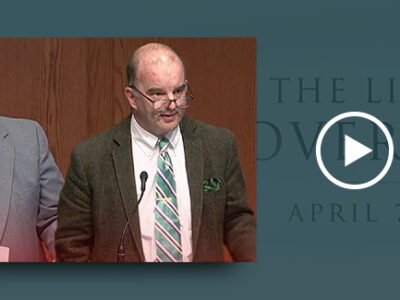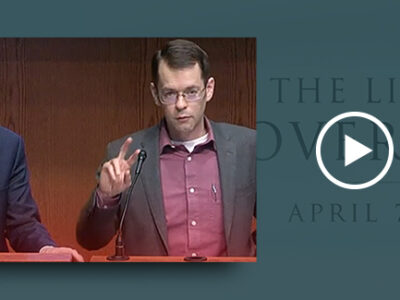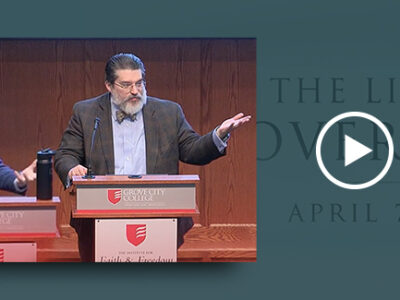As the Twin Cities struggle to return to normalcy in the aftermath of the collapse of the bridge along I-35, we will be subjected to the unseemly spectacle of politicians pointing fingers at each other. I am not interested in this political soap opera, but rather in the larger lessons we can learn from this tragedy.
In reviewing some notes I made in the early 1980s, our country’s infrastructure—roads, bridges, dams, sewers, subways, waterways, etc.—was considered to be in such poor shape (even way back then) that it was projected to cost $2.5 trillion (about $5 trillion in today’s prices) to make the necessary repairs and maintenance. More than two decades later, in 2005, the American Society of Civil Engineers gave our country’s infrastructure an overall grade of “D,” with not a single individual component (e.g., bridges) earning a grade above “C+.” Now, an important bridge—a part of the crown jewel of our national road network, the Interstate Highway System—has crumbled into the Mississippi River.
Conclusions:
1. Although the problem has been known for a long time, it hasn’t been adequately addressed.
2. Since government has jurisdiction over public infrastructure, what we have here is a failure of government.
3. Since government has spent many multiples of $2.5 trillion in the last 25 years without fixing our infrastructure, government must have had other priorities for its prodigious spending.
It would take many pages to list those “other priorities,” so let us instead examine the fundamental question: What should be government’s priorities?
Our Founding Fathers addressed this very question. As keen students of history, they understood that the bigger government grew (i.e., the more power and control it exercised) the more the people under it ultimately suffered. That is why the Constitution of the United States enumerated very few specific powers and duties for the federal government.
The primary foundational principle of the Constitution was encapsulated in the phrase “promote the general Welfare” in the Constitution’s preamble. To the framers of the Constitution, “promote the general Welfare” meant that Uncle Sam would perform only those functions from which all citizens could benefit. The adjective “general” was used in clear contradistinction to “special,” as in “special interests.” Thus, the federal government would be entrusted with protecting the territorial integrity of the United States, since all Americans would be the presumed beneficiaries of protection from attack and invasion. A common standard of laws, weights, measures, sound money, and policies facilitating interstate commerce—again, functions that could help everyone without partiality—were other priorities.
It was inconceivable to the founders that the federal government would bestow grants or subsidies to particular kinds of businesses or particular categories of citizens (e.g., seniors, college students, the unemployed, etc., etc.). Today’s government, by parceling out favors to multiple special interests, is in the full-time business of bestowing privileges. Privileges (a word derived from two Latin words meaning “private laws”) are the antithesis, the repudiation, of the rule of law—the biblical principle that all are equal before the law—which our founders cherished and then codified in our Constitution.
“Well look, Hendrickson,” the critics reply, “the founders are ancient history, and times have changed.” Indeed, times have changed. Government has grown into a leviathan, trying to be all things to all people. Craven politicians buy votes and campaign contributions with other people’s money. Contemporary government has taken on 20 kajillion tasks, rather than concentrating on the handful of basic tasks that a government dedicated to promoting the general welfare would perform. And what are the results? A government that spends beyond it means, stretches itself too thin, and fails miserably to discharge some of its primary responsibilities. Is that what you want—a government that is the world’s largest debtor, yet fails to perform basic functions, such as controlling who comes into our country and keeping its infrastructure from falling apart?
If you think Big Government is the answer to our problems, I respectfully request that you reconsider. The government retirement program—Social Security—isn’t adequately funded and will give today’s workers a lower rate of return than a private annuity would provide. Government health-care entitlements have inflated medical costs enormously, and the unfunded liabilities of these programs will bankrupt the government within a few decades. Government spending on education has soared, even though there is no correlation between dollars spent per pupil and educational achievement. In short, on what basis can anyone make a strong case for government competence?
Personally, I have reservations about government being in charge of building our roads. But since government has that authority, let’s hope that our politicians contract out infrastructure building and maintenance projects to private firms through graft-free, competitive bidding.
The fallen bridge in Minnesota is telling us loud and clear that it’s time to get our priorities back in order. I can think of no better guideline for how to determine our priorities than the principles of law and government that are embodied in our Constitution.




